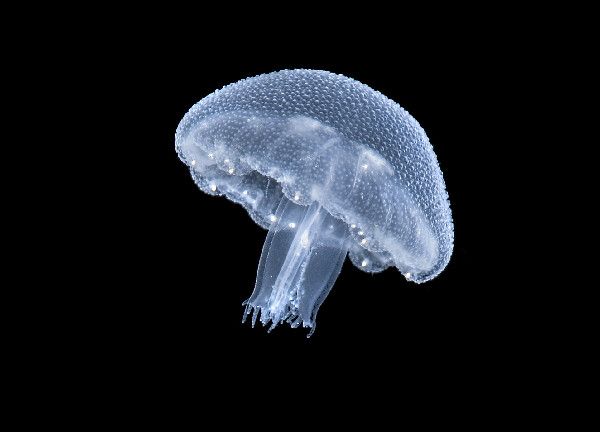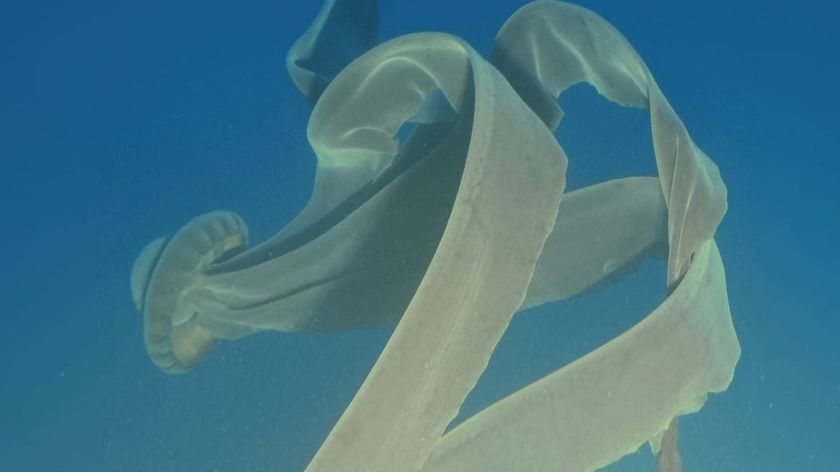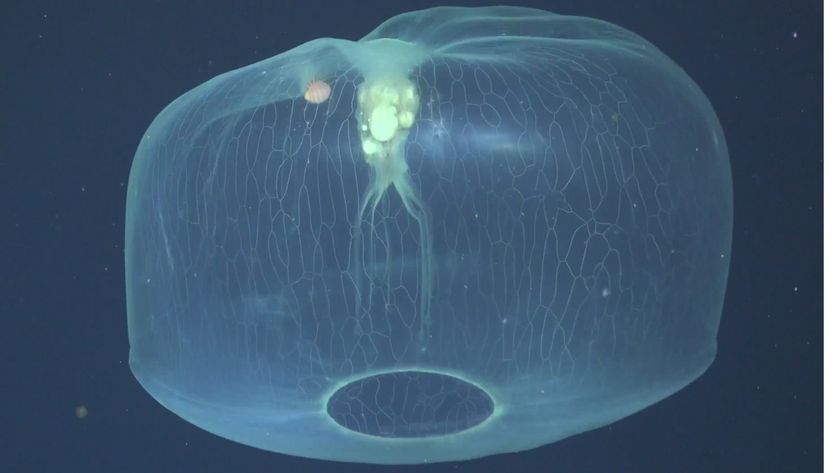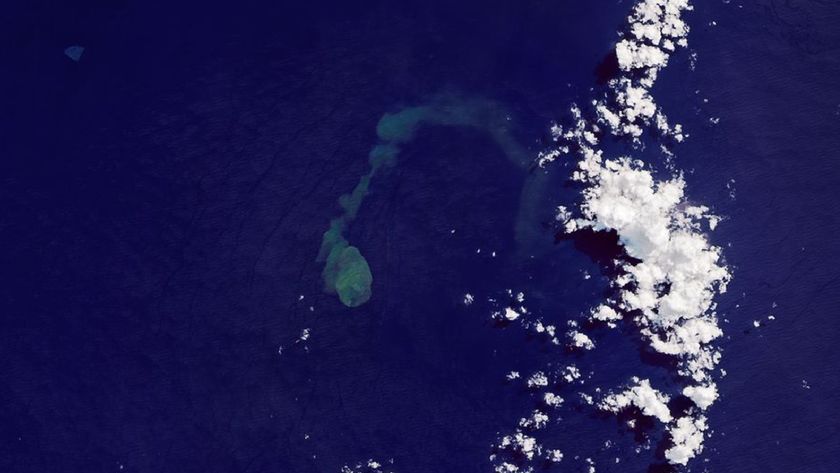Why Jellyfish Flourish: They're Surprisingly Effective Predators

As pulsing blobs, jellyfish seem out of place among the ranks of sleek, efficient predators of the sea. However, new research indicates that they rival plankton-eating fish, such as sardines and anchovies, when it comes to plucking prey out of the water and using the energy from it.
This may help explain why jellyfish appear to flourish in some ecosystems after overfishing, pollution or other problems have wiped out other inhabitants, says lead researcher José Luis Acuña, a professor of ecology at the University of Oviedo in Spain.
The jellyfish's proficiency as a predator may seem surprising, because while plankton-eating fish have eyes to spot their minuscule meals and swim toward them, most jellyfish cannot see and essentially must bump into their prey while pulsing through water.
Fish versus jellyfish
This team's work is not the first to compare the efficiency of jellyfish and fish. However, early work did not take into account a crucial factor, Acuña said.
The gelatinous bodies of jellyfish are largely made up of water, making them disproportionately bigger than other animals (like sardines and us) that have much drier bodies and more densely packed organic matter. In fact, jellyfish are made up of about 96 percent water, with a lot of salt, while most animals have around bodies made up of about 65 percent water, according to Acuña. [Image Gallery: Freaky Fish]
But when taking into account the crucial element of carbon in their bodies, fish and jellyfish clear the water around them of prey and use the food to produce energy at similar rates. The researchers calculated that the jellies and their competitor fish also have similar potential for growth and reproduction.
Sign up for the Live Science daily newsletter now
Get the world’s most fascinating discoveries delivered straight to your inbox.
The term "jellyfish" encompasses two different groups: Cnidaria, animals armed with stinging cells, which include corals and true jellyfish, as well as the non-stinging Ctenophores or comb jellies, which use rows of tiny hairs, called cilia, to swim. The researchers included both in their calculations.
In some ecosystems subject to heavy fishing and other human-caused pressures— such as in Japanese waters and off the coast of Namibia in southwest Africa— jellyfish have flourished.
It has been predicted that as fishing removes the top predators and subsequently moves down the food chain in oceans, the seas eventually will be dominated by jellyfish, according to Graeme Hays, a professor of marine biology at Swansea University in Wales. Hays was the lead researcher for a study published in July in the journal Proceedings of the Royal Society B that found jellyfish actively swim up and down in the water in search of prey.
Regarding the idea that human activities could help jellyfish flourish, Hays said, "It’s a hypothesis, and at the moment scientists are working around the world to see whether this hypothesis is true or not." He noted that data on jellyfish populations don't go back far enough in time to give scientists the perspective they need.
"So now what people are trying to do is establish these time series, but then it will be a number of years of data collection before we can tell if they are really increasing or if these are just isolated occurrences," he said of so-called blooms of jellyfish in heavily fished waters.
Hays said both his own work and Acuña's "point to jellyfish being very effective predators, which was unknown before, so that would certainly help them take over in ecosystems."
Why so watery?
Jellyfish swim by pulsing their swimming bell. As they move, currents flow around their bodies and deliver tiny floating plants and animals, called plankton, to the stinging cells on the arms or tentacles that trail behind the bell.
A larger size makes this process more effective, so it's possible jellyfish simply increase the water content of their bodies to ensure more efficient foraging. This, however, introduces another problem: The bigger you are, the more energy you need to swim. The solution, Acuña and his team propose, is to swim slowly, which jellyfish do.
A watery body offers another advantage, according to Hays: "By making yourself very large with low carbon content, it means you are not a very appetizing meal, because they [predators] don't gain much by eating you," he said. "For that reason, there are very few animals in the ocean that will eat jellyfish, simply because it is not profitable."
You can follow LiveScience senior writer Wynne Parry on Twitter @Wynne_Parry. Follow LiveScience for the latest in science news and discoveries on Twitter @livescience and on Facebook.












